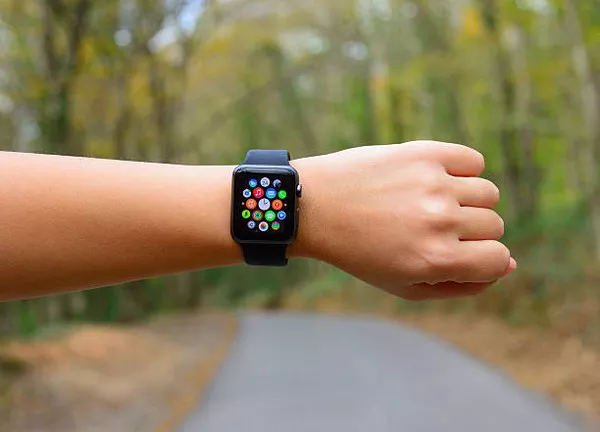In the realm of fitness tracking, the Apple Watch continues to advance with each software update. The latest iteration, watchOS 11, introduces a noteworthy feature that has quickly become a favorite among runners: the enhanced distance tracking widgets.
Apple’s watchOS 11 brings a range of new capabilities, with training load being the standout feature for analyzing workout intensity and its effects on the body. However, the update also includes subtle yet impactful enhancements that may initially go unnoticed but prove highly beneficial. Among these, the new widgets and complications for monitoring weekly and monthly distance in various workouts—running, swimming, cycling, and walking—have captured my attention.
For the past week, I have been utilizing the weekly distance widget as a complication on my watch face. This feature displays a bar chart illustrating daily running distances, complemented by the total distance for the week prominently displayed above. Additionally, the monthly distance widget, featured in my smart stack, presents a line chart tracking distance progress throughout the month.
While seemingly minor, this addition is a game-changer for anyone serious about fitness tracking. It provides a motivating visual reference and helps prevent the pitfalls of suddenly increasing mileage, which can lead to injuries.
Competitors like Garmin offer weekly running distance on customizable watch faces, while Suunto and Polar provide clear weekly workout totals. Yet, Apple has set a new standard with the level of detail available for weekly mileage at a glance. Previously, I relied on third-party apps like YouRace for similar data, but Apple’s built-in solution is a welcome upgrade.
The new widgets seamlessly integrate with any sports tracking app you prefer, contributing to the weekly distance total. I personally favor WorkOutDoors for its data field customization and route mapping features. However, users must be cautious about duplicate data from multiple sources, such as Strava and WorkOutDoors, which can skew distance statistics.
In addition to tracking running distances, the update supports cycling, swimming, and walking metrics, making it invaluable for triathletes and general fitness enthusiasts. The feature is an excellent tool for monitoring overall activity levels.
While I am still acclimating to the new training load feature—which requires ten days of workouts to establish a baseline—it promises to be a valuable asset for long-term training. Nevertheless, the immediate benefits of the new distance tracking complications are likely to appeal to most avid runners.
To add the new complication, press and hold the watch face, navigate to complications, and select an appropriate slot for the long complication. For integrating distance into the smart stack, swipe down from the home screen, press and hold an existing widget, and add more as needed.
Another notable enhancement in the watchOS 11 beta is the ability to pause activity rings, a feature that proves useful on rest days to avoid the pressure to move more and potentially disrupt streaks.

